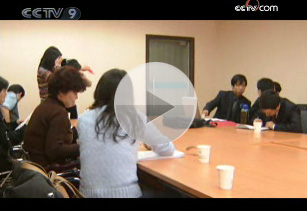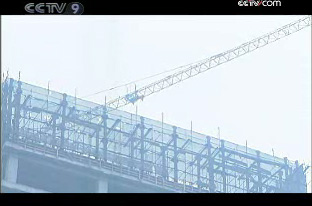Source: CCTV.com
09-24-2008 14:06
The co-operative housing scheme went ahead. But inevitably, conflicts broke out, either between different individuals, or between individuals and the system. After Meng Xiansheng quit, five of the nine board members also left. It was only two months after the Lancheng Company had been founded. The tension severalty undermined the confidence of the other participants.
 |
| Watch Video >> |
In addition to his disappointment with the disunity in the group, Chen Wei discovered several other problems. The group was loosely organized. Shareholder representatives only communicated with each other at regular board and shareholders’ meetings. As a group leader, Chen Wei wanted to improve the communication between the members of different groups, and so promote the development of co-operative housing.
 |
The knowledge that others shared his concerns, helped calm Chen Wei.
Less than six months after joining the co-operative housing scheme, Chen Wei also quit. Many of the shareholders representatives left with him. Once again, Yu Linggang had his own view of the situation.
However, things developed in a very different direction. After several shareholders representatives left, their group members stopped participating in activities and gradually broke away. Less than three months after the Lancheng Company had been founded, half of its shareholders had already stopped playing an active role. These people had once been dedicated adherents to the ideal of co-operative housing. Meng Xiansheng’s concerns had been realized.
Before he left, Chen Wei identified a number of problems.
With more people leaving, the issue of capital became a greater concern. In the spring of 2005, the government enacted a series of policies designed to prevent house prices from rising too sharply. Even so, prices remained very high, and as a result, people placed more hopes in co-operative housing. Meanwhile, the Lancheng Company had conducted the election of a new board of directors, and Yu Linggang had signed agreements with several financial agencies. The participants had deposited their capital in the bank, and with everything ready, it was time to take the next step; bidding for land.
However, this involved many complex procedures, and also required a lot of capital. The loss of so many participants had left the group without the financial means to buy the land. Faced with this situation, Yu Linggang made a decision that took everyone by surprise. He announced that he would be cooperating with a real estate developer. Before long, the Wantong Real Estate Company had agreed to join the co-operative housing scheme.
The declared aim of co-operative housing was to eliminate real estate developers. It was a slogan that the media had picked up on. Many of the participants had joined Yu because of it. However, the cooperation with Wantong meant a real estate company would be playing a role in many aspects of the operation, such as the capital formation, construction, and land bidding. Yu faced accusations of going against his original principles and cheating the other participants. There were also rumors that Yu Linggang had been bought by real estate agents.
Yu Linggang was optimistic about the cooperation with Wantong. But this was a new model, that went contrary to his original design. However much he tried to explain, he still couldn’t convince the media or change public opinion.
The media always influences ordinary people, either positively or negatively. And so, nobody was interested in co-operative housing any more.
Unable to raise enough money or persuade the media to back them, the participants in the co-operative housing scheme, were at a dead end.
